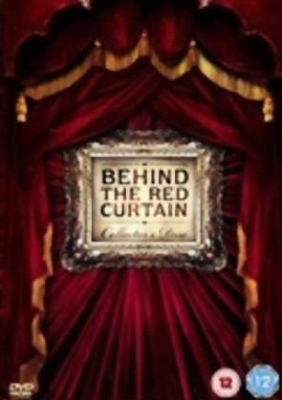I have been writing recently about thought particles (and here / here). The concept that ideas can be understood as a type of chemistry. That a flow of thought particles can be exchanged and remixed between people into new and different forms.
We think we experience the world in absolutes i.e. we see things as they are and feel them as they are meant to feel. The job of the film maker would therefore be to simply try and recreate the world as it really is in the most accurate way possible - do this and it really will feel like the past, or a different country or a relationship between two people.
What this forgets is that the only kind of reality is our own; it is unique to the individual. I did not live that version of the past, may never have been to that country nor experienced that kind of relationship.
In other words simulating something as it seems to be might not be the best way to communicate how it actually is.
This is where thought particles come in. For the creative person they are a toolkit of raw materials that can be fused and combined into any configuration they see fit, to transmit a meaningful experience. It may not end up looking, sounding or feeling like it might have done in real life but could be a far stronger, more captivating, and then strangely somehow more real than pure imitation.
I think that Baz Luhrmann on some level works in this way to create things more compelling than reason would allow. Instead of trying to copy a story from life he seems to play with the ingredients and mix them into forms that should not make sense.
For example to understand the past you do not have to have it accurately recreated; this might not tell you anything. Nirvana may be better for bringing to life the atmosphere of the 19th century than the music of the time itself.
Before I saw him interviewed I thought that his style could be simply a kooky way of seeing the world (similar to Russel Brand,) that looks strange to us because the cogs driving it are out of sync with those of the rest of us. In other words creative flair. Having seen him describe the process I now think that its more structured and rigorous and thought through than this. A good argument for this would be the amount of time it takes to make a film (Australia has been 6 years in the making.) He seems to be engineering the experience that he wants to create not like an artist but more like a chemist. What if you wanted to strip down the individual 'particles' of your film from light, to colour, words, landscape, sound, etc... and then think of them only as components or raw materials, taking as little as possible for granted while doing it? What if then you re-configured them meticulously into the unique personal experience that you wanted to gift to the audience? Then it would be little surprise that you might end up on the project for a pretty long time.


2 comments:
PS you can see the interview on the bbc iplayer for a new more days if you are in the UK.
The Culture Show Uncut: 2008/2009: Strictly Baz: A Culture Show Special
http://www.bbc.co.uk/iplayer/episode/b00g2jkc/The_Culture_Show_Uncut_2008_2009_Strictly_Baz_A_Culture_Show_Special/
Yes, in due time to answer, it is important
Post a Comment